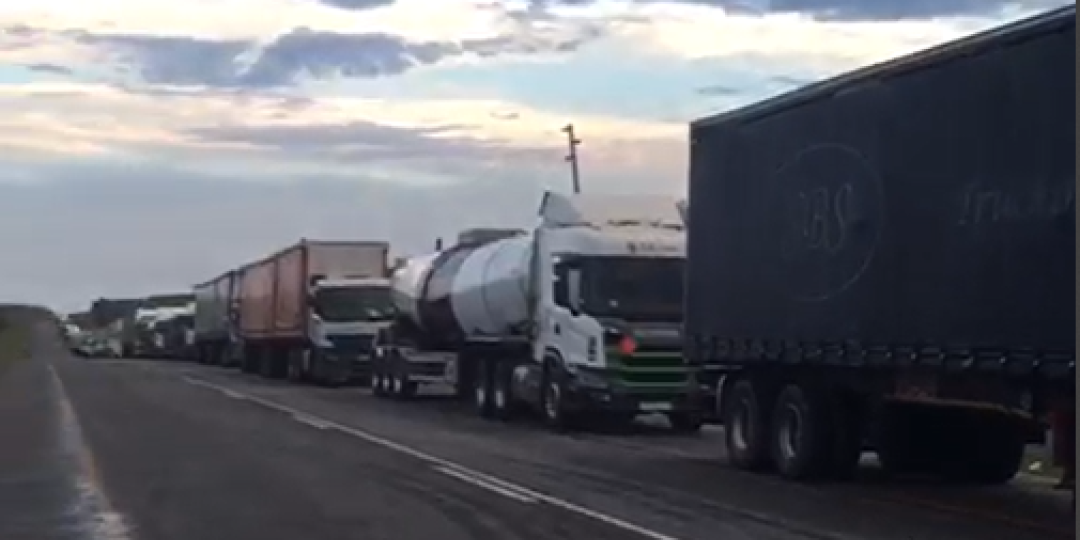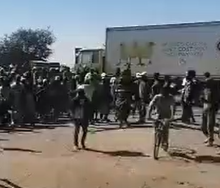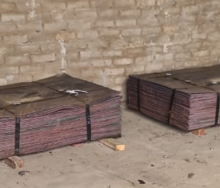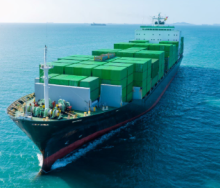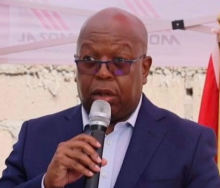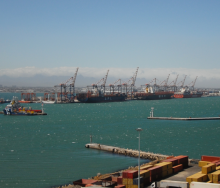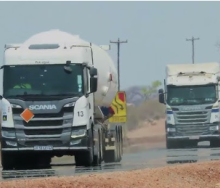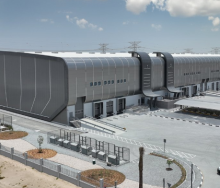The customs complexity that Botswana has introduced to individually itemise all in-transit cargo travelling between neighbouring countries has forced the landlocked country’s Unified Revenue Service (Burs) to backtrack on its own rigid cargo clearing measures.
This has emerged from sources responding to a meeting convened by the Trans-Kalahari Corridor Secretariat (TKCS) and held at the Pioneer Gate Border Post earlier this week.
Essentially it was agreed that all cargo entering Botswana must henceforth be pre-cleared.
According to Mike Fitzmaurice, vice-president of the African Union’s Organisation for Transport and Logistics, it was also decided that Burs and the South African Revenue Service (Sars) would implement document harmonisation to enable cross-border cargo clearance efficiencies, which, for now, is wholly lacking.
Fitzmaurice, a one-stop border post specialist, said it remained to be seen if single-window interfacing between Sars and Burs would be implemented.
Essentially an old issue, he said it could take a month or two for such synchronisation to take effect, provided that the will existed to make it happen.
As for pre-clearance, he said only time would tell if the road freight industry complied.
In the past, too many operators have gone ahead to send uncleared loads to congested borders, spoiling the transit party for law-abiding hauliers patiently waiting in line to proceed with pre-cleared cargo.
At the TKCS meeting it was decided that loads arriving at border gates without the necessary clearance documentation would be turned away.
As with pre-clearance enforcement, this is nothing new and where uncleared loads are stopped and turned around it tends to add to the bottlenecking at borders.
Speaking of which, Fitzmaurice said the backlog at the Kopfontein Border Post was about six kilometres on November 28. At the usual rate of traffic flow, trucks in the back of that queue could take at least two days to get through Tlokweng Border Control in Botswana.
The crossing is especially used for Botswana-bound cargo from South Africa and serves to illustrate how Burs’s in-transit measures have backfired on its own domestic import concerns.
In comparison, traffic at Groblersbrug Border Post further north, a popular cross-border point for in-transit cargo going via Botswana to the Copperbelt, is drying up because of the customs issue with general cargo entries.
In-transit tankers avoiding the Beitbridge Border Post because of duties for fuel going through Zimbabwe, are now thoroughly hemmed in by two inland services, making it virtually impossible to meet Copperbelt deadlines.
Whereas the Zimbabwe duties were refundable on exit at Chirundu, it could take days for the country’s banking system to release the money, Fitzmaurice said.
And whereas the route through Botswana across the Zambezi River’s Kazungula Bridge used to be a viable bypass option, that is no longer the case because of the Burs issue at Groblersbrug. Ultimately, whether a transporter has to clear a hundred items in one consolidated truckload or you’re a tanker carrying a single load of fuel, all have to squeeze through the same Customs choke point.
